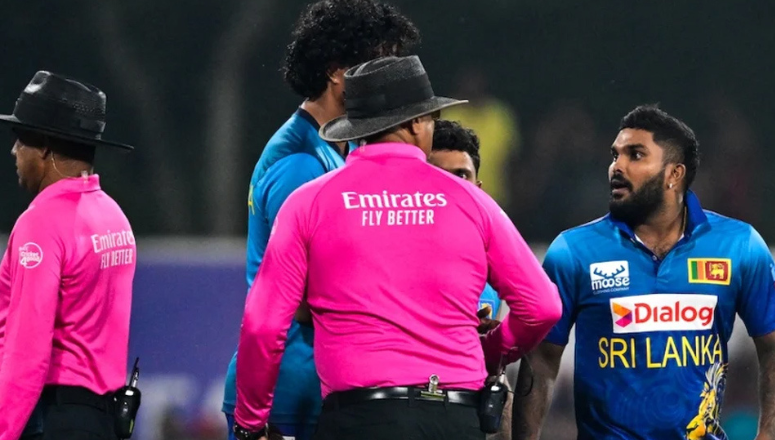- Dec 2, 2024
- Feb 18, 2024

The final over of the third T20I between Sri Lanka and Afghanistan crackled with tension. Chasing a stiff target, Sri Lanka needed 11 off the last three balls. But amidst the drama, a missed call sparked outrage, igniting a firestorm of debate. Sri Lankan captain Wanindu Hasaranga, known for his fiery passion, unleashed his fury on umpire Lyndon Hannibal for a controversial no-ball call, or rather, the lack thereof.
The flashpoint arrived with the third ball of the final over. Wafadar Momand’s delivery soared well above the batsman’s waist, a clear no-ball according to the rules. However, umpire Hannibal remained silent, deeming it a legal delivery. Kamindu Mendis, the batsman, rightfully appealed, but the third umpire, unable to review non-dismissal calls like no-balls, could offer no assistance. This decision proved pivotal. Had it been called a no-ball, Sri Lanka would have been awarded a free hit and would have had to chase 10 in 3 deliveries. Instead, they were left needing 11 off two balls, a near-impossible task. Ultimately, they fell short by three runs, leaving a bitter taste in their mouths.
Hasaranga, not one to mince words, expressed his disappointment in no uncertain terms. He didn’t directly name Hannibal, but his message was clear: “That kind of thing shouldn’t happen in an international match… If you can’t see that, that umpire isn’t suited to international cricket. It would be much better if he did another job.”
These strong words ignited a firestorm. Some fans agreed with Hasaranga, arguing that such blatant errors at the highest level were unacceptable. Others defended Hannibal, pointing out the difficulty of umpiring in real-time and the pressure of high-stakes matches.
The incident also reignited the debate surrounding the use of technology in cricket. Should the third umpire be able to review all no-balls, not just those involving potential dismissals? This would undoubtedly reduce human error.
Beyond the specific case of Hasaranga and Hannibal, the incident highlights the wider issue of umpiring standards and the pressure on officials in high-profile matches. It’s a complex issue with no easy answers, but one that deserves serious discussion to ensure fair play and maintain the integrity of the sport.